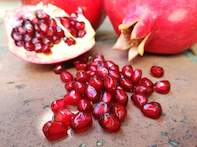
Genetically modified organisms gained prominence in South Africa through its application in agriculture. Commercial and smallholder farmers have benefited economically from these crops through increased crop yields and reduced inputs.
Research also suggests additional benefits to farmers in the form of time savings due to the reduced labour requirements and the elimination of the challenges associated with the application of chemical insecticides with its added safety benefits. GM crops also present a potential solution for addressing malnutrition, through biofortified crops, and climate change, through drought tolerant crops.
In addition, several rDNA medicines have been approved for use in South Africa, including human insulin, cancer therapeutics, growth factors and vaccines.
According to Dr Hennie Groenewald, executive management of Biosafety SA, South Africans do not think much about “biotechnology” and will rather base any possible opinions and decisions on the characteristics and familiarity of the relevant products.
However, in context of genetically modified organisms (GMOs) the Public Understanding of Biotechnology (PUB) Programme of the South African Agency for Science and Technology Advancement has conducted two major biotech surveys in 2004 and 2015 to gauge public sentiment. In these surveys 79% of the respondents acknowledged a belief that science and technology improved their lives.
In 2004, 79% of the respondents said that they were not familiar with the term “biotechnology”, with this percentage dropping to 60% by 2015. In comparison, only 19% have not heard of “DNA”. Seventy-seven percent of the respondents said they were aware that they were eating genetically modified food.
So, although there has been an increase in the public’s awareness of biotechnology, interest, knowledge and understanding remains low, allowing misconceptions to persist.
The results of the biotech surveys clearly show that the South African public can be broadly described as “less informed, but more positive” about biotechnology, and specifically GM food which forms the focus of most international perception studies, than people from most other countries, according to Dr Groenewald.
“South Africans are more positive about the health implications of GM food, less critical about the environmental impact of GM food, and more positive about the economic benefits of GM food compared to Europeans and Americans,” he explains.
 Many different ways of farming are used in South Africa, ranging from intensive to extensive and free-range, conventional to organic, biodyn...
Many different ways of farming are used in South Africa, ranging from intensive to extensive and free-range, conventional to organic, biodyn...